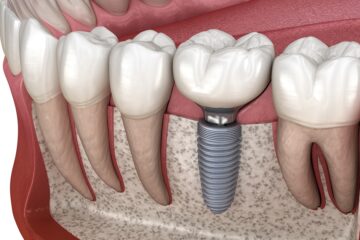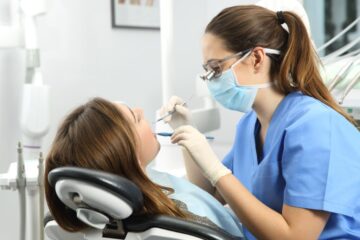Low Testosterone and Improving Sexual Desire
Men who suffer from low levels of the male hormone testosterone may experience mood swings, lack of energy, and insomnia. Low levels may prevent a man from fathering a child and may even lead to a low sperm count. Some medications, such as chemotherapy and radiation therapy, can cause low levels of testosterone in a man’s body. Men with certain illnesses that can lower testosterone levels may also wish to have their hormone levels checked.
While there are many ways to diagnose and treat Low Testosterone, a physician may recommend a testosterone replacement therapy to address these symptoms. This therapy may be given as a shot, gel, or patch. While it may not cure low testosterone, it may help to improve symptoms and increase muscle mass and prevent bone loss. Some men experience an improvement in libido when they take testosterone, and it may even help them get erections after undergoing treatment for the condition.
To diagnose low testosterone, doctors will perform a blood test to determine the level of the hormone. Typically, testosterone levels range from 300 to 1,000 ng/dL, but a doctor may order another blood test to further investigate the cause. High levels of LH may point to an issue with the pituitary gland. A blood test may also be ordered to determine if you have high or low hemoglobin levels. Hemoglobin is a protein that is present in red blood cells. The oxygen that enters the lungs attaches to hemoglobin in the blood and carries it to the tissues.
Men with diabetes and overweight are at increased risk for Low-T. Overweight men are more likely to suffer from Low-T, as they tend to have higher BMI levels. However, even men with normal BMI levels show a reduction in testosterone, but it is not low enough to be considered Low-T. Interestingly, men who are active and take part in physical activity are also less likely to suffer from Low Testosterone.
Other factors that cause low levels of testosterone are certain medical conditions and trauma, that may be caused by or leading to porn addiction problems that should be reviewed by a medical professional. Some men suffer from a condition known as Klinefelter syndrome. In this disorder, a man’s testicles do not descend from the abdomen to the scrotum, as they should. Affected men may require testosterone therapy in addition to a diet or exercise program. These treatments can lead to side effects and increase the risk of other health conditions.
There are several causes of low testosterone, including medical conditions and the effects of medical treatments. One of the most common causes is aging, but the presence of low-t may also be the result of an underlying problem affecting testicular function. In some cases, low testosterone may be caused by a condition known as testicular atrophy, which may result in reduced levels of testosterone. However, it is not a cause of infertility.
Other factors that can cause low testosterone levels include depression and thyroid disorders. However, some symptoms can be caused by other conditions, including diabetes and high blood pressure. Testosterone levels are measured with a blood test. This is the standard treatment for men with low testosterone. However, if you think that your symptoms are due to low testosterone levels, you should see a doctor immediately. If you suspect you may have this problem, a blood test will determine whether it is a symptom of another condition.
There are many symptoms of low testosterone, including mood changes, poor concentration, decreased energy, sleep problems, and difficulty conceiving. Among the most serious effects of low testosterone are the physical changes it can cause. Low levels of testosterone can even prevent men from fathering children. Men suffering from cancer, radiation therapy, and steroid medications may have lowered testosterone levels. In such cases, a test may be recommended. A doctor can perform a test to determine the cause of low testosterone.
A doctor can tell if a man has Low Testosterone by looking at his blood tests. Testosterone levels vary throughout the day, with the highest levels occurring in the morning. A test is considered low T if the blood levels of testosterone are less than 300 nanograms per deciliter on two separate tests. Low T blood tests measure testosterone and other hormones produced by the pituitary gland, including SHBG.
A man with Low Testosterone may also suffer from testicular cancer. Other conditions may also affect testosterone levels, including some types of congenital conditions. Other conditions that can affect testosterone levels include diabetes, obesity, and opioid use. Symptomatic treatment for Low-T should be based on symptoms and underlying health issues. However, if the symptoms are not present, testosterone therapy should not be pursued. If you suspect that you may have Low Testosterone, contact a doctor immediately to discuss your symptoms and a treatment plan.
Treatment for Low Testosterone may include hormone replacement therapy. This can be in the form of injection, gel, or patch. Treatment can improve sexual desire and prevent bone loss. However, testosterone replacement does have side effects. If you do not get relief from symptoms after treatment, your doctor may recommend a different medication. This is because low T is caused by other underlying medical conditions, like prostate cancer. In addition to causing symptoms, testosterone replacement therapy can also cause other complications.
Many men are uncomfortable discussing men’s health with their doctors, including prostate health or hormone imbalance. However, understanding the issues associated with these issues is important for every man. In fact, professor Arnold Bullock, MD, of the Washington University School of Medicine in St. Louis, Missouri, offers advice to men who have questions about Low Testosterone. Ask your questions and get the answers you need. Don’t be afraid to seek treatment for Low Testosterone. It may just be what you need to get back on track.
Although low levels of testosterone are rarely apparent, they can affect your mood, energy level, and fertility. Many of the symptoms of Low Testosterone are similar to menopause, and they may be related. In addition to cancer, organ damage, and certain medications can result in low levels of this vital hormone. Obesity is the biggest contributor to low testosterone because fat cells convert it into estrogen. Other risk factors include high cholesterol, diabetes, and HIV/AIDS.









